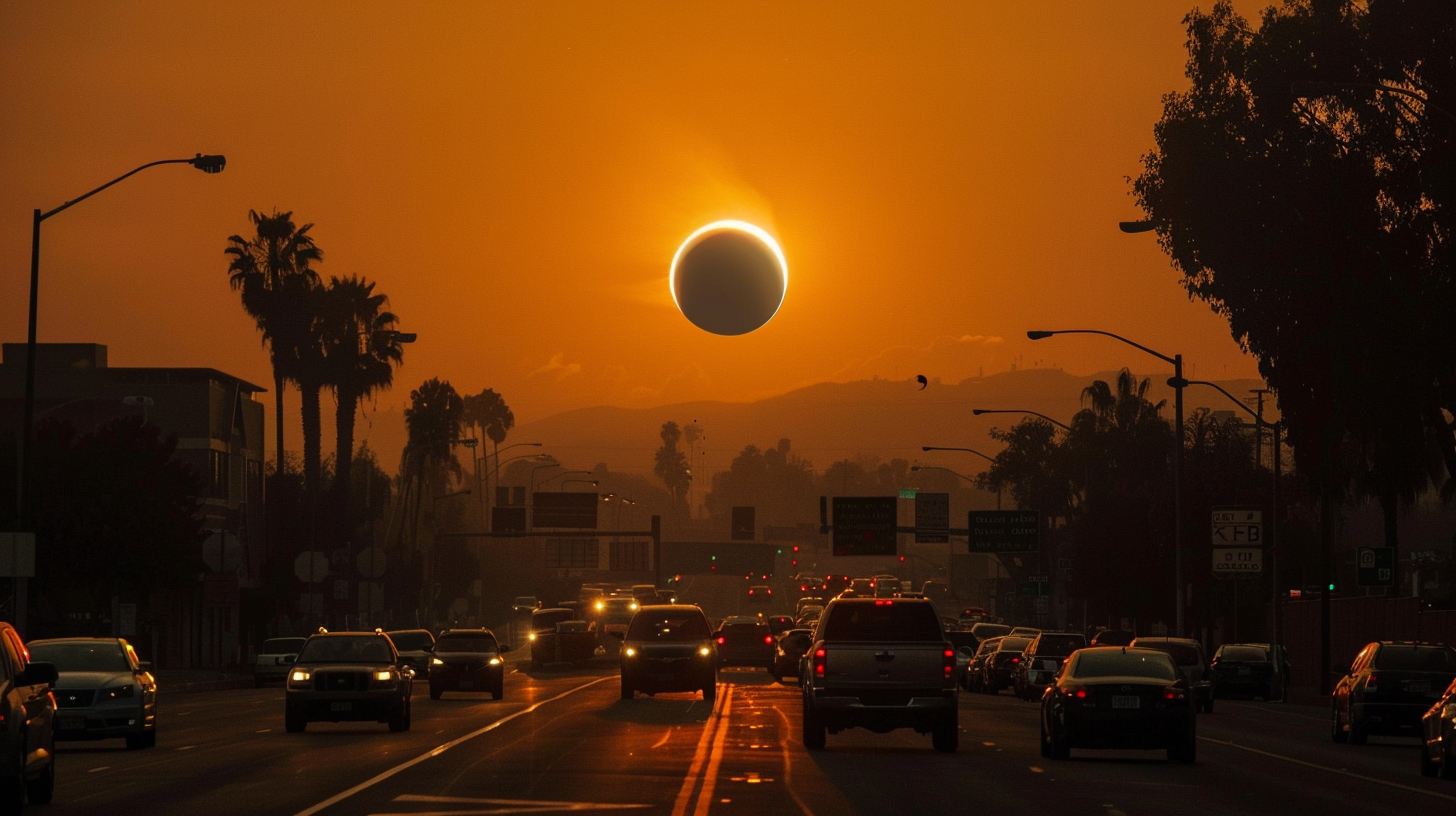
The upcoming total solar eclipse is set to take place on Monday, April 8, across the United States, Canada, and Mexico, and while many Americans are eager to get a pair of safety glasses to witness the event, researchers are calling attention to an interesting phenomenon that occurs around eclipse time.
Researchers looked into the 2017 solar eclipse, which was visible within driving distance for one-third of the U.S. population. Ultimately, they learned that the event was associated with an increase in fatal traffic accidents.
“During the 2017 total solar eclipse, the path of totality was narrow (about 70 miles wide) and the eclipse lasted less than three minutes in any one place (maximum duration of 160 seconds in Carbondale, Illinois),” the researchers wrote. “The increased traffic risks are difficult to attribute solely to transient changes in ambient light. Instead, the findings likely derive from increases in traffic.”
Distracted driving during the eclipse
To understand the risks associated with traffic accidents during the eclipse, the researchers analyzed data from the National Highway Traffic Safety Administration Fatality Analysis Reporting System.
The team looked at crash data in a three-day period that surrounded the eclipse, to account for trips taken to and from eclipse-sighting locations. They compared those results with three-day periods in the week before and after the eclipse to understand the effects of the event on traffic accidents.
Overall, the research showed that the eclipse was associated with 31% more traffic accidents. In absolute terms, this translated to one extra crash-involved person every 25 minutes, and one extra crash fatality every 95 minutes.
The researchers explained that these figures are similar to other major driving holidays, including the Fourth of July, Thanksgiving, and Memorial Day.
The team believes that a number of factors could contribute to the increase in traffic accidents, including distracted driving to catch the eclipse, viewing the eclipse from unsafe locations, driving in unfamiliar locations, impaired driving following eclipse-related celebrations, and more.
Staying safe on the roads
With the total solar eclipse coming up in just a few weeks, it’s important for drivers to be safe and alert on the roads. The researchers are calling on consumers to prioritize safety on the roads during the height of the eclipse.
“The next total solar eclipse will occur on April 8, 2024, and is within driving range for more than 200 million individuals within the U.S.,” the researchers wrote. “To help prevent another possible surge in traffic fatalities, clinicians might advise patients to respect speed limits, minimize distractions, allow greater headway, wear a seatbelt, and avoid driving while impaired.”
Photo Credit: Consumer Affairs News Department Images
Posted: 2024-03-27 11:24:17




















